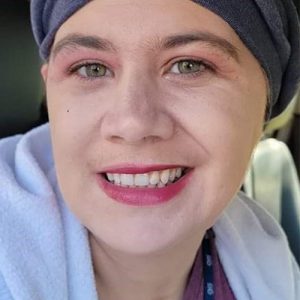 With four young kids at home and a husband who travels, Elizabeth Ackerman was Supermom. She juggled school, errands, and homework help with ease. But in December 2021, she suffered a stroke, which required a craniectomy and hospitalization. In an instant, this competent woman lost her ability to walk, speak, cook, and play with her children, aged three to 11.
With four young kids at home and a husband who travels, Elizabeth Ackerman was Supermom. She juggled school, errands, and homework help with ease. But in December 2021, she suffered a stroke, which required a craniectomy and hospitalization. In an instant, this competent woman lost her ability to walk, speak, cook, and play with her children, aged three to 11.
The shock was compounded by what followed. Elizabeth acquired aphasia, a disorder that limits speech and is caused by damage to one or more of the language areas of the brain. Her other deficits included memory, vocalization, inability to walk, and weakness on her right side. But since coming to Centre for Neuro Skills’ (CNS) Houston clinic last February, she is regaining vital skills, in the hopes of holding her three-year-old again. With individualized treatment and intensive therapy, Elizabeth’s goals are now within reach.
A Rockstar Reclaims Her Skills
CNS measures patient progress by using the Independent Living Scale (ILS), and Elizabeth’s scores make her a Houston rockstar. She was admitted with a score of 75.2 and is now at 92.4. The Activities of Daily Living skills that CNS tracks daily comprise a patient’s ILS score. Elizabeth is mastering core skills needed to resume life as a mom: safety, cognition, hygiene, reasoning, and meal preparation. Jill Harrell, her case manager, said motivation was key in her success. That drive is evident in Elizabeth’s progress.
“Find A Way” is a CNS slogan that inspires therapists to innovate – and advocate – to maximize patient success. Elizabeth faced challenges communicating with her family. Jill encouraged her to use texting and iPhone photos to convey concepts and requests; now she can text with one hand and communicates daily with her family and staff. When patients discharge, CNS refers them to specialized resources that ease the re-entry experience. Elizabeth will be referred to aphasia support groups to enhance her post-rehabilitation journey.
Stroke and aphasia are devastating events, yet Elizabeth has thrived at CNS, having moved through the inpatient, residential and now outpatient programs. She walks with the aid of a cane, applies her makeup each morning, and has even made a buddy at the Houston clinic. She befriended another woman who’s also being treated for stroke, and they support each other through the phases of healing. They’re pals and cohorts, Jill says.
“We call them Thelma and Louise,” she mused.
Finding camaraderie while bonding with a compassionate staff has transformed Elizabeth. Jill was moved by a recent text that sums up Elizabeth’s triumph: “I’m beginning to feel like myself again,” she wrote.
CNS Monthly Newsletter
The latest CNS updates, including events, company information, and patient care developments
The Inside View
Quarterly magazine focused on brain injury research, rehabilitation, and advancements shaping the field
Sign-up for one or both to stay connected with brain injury news and recover